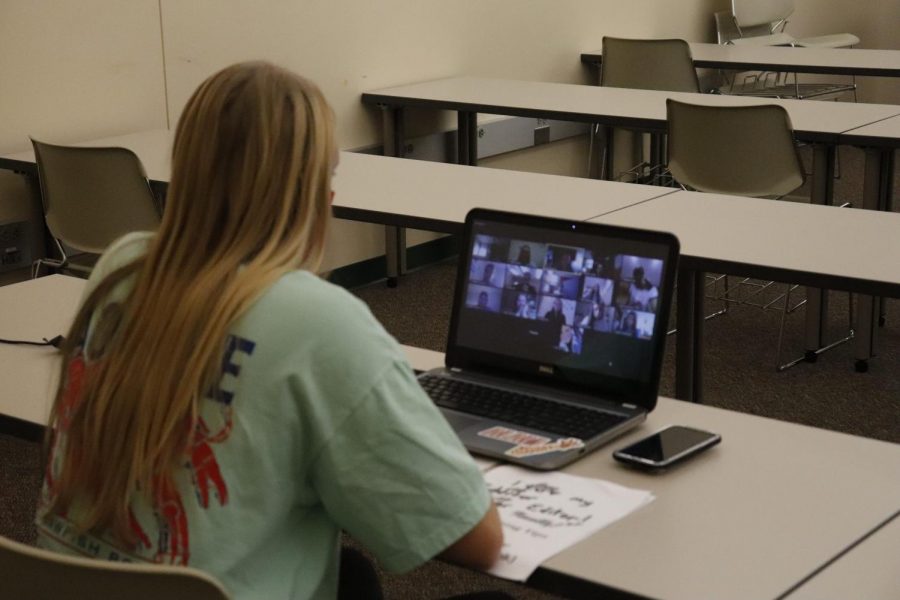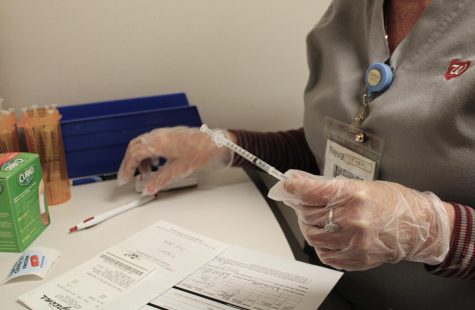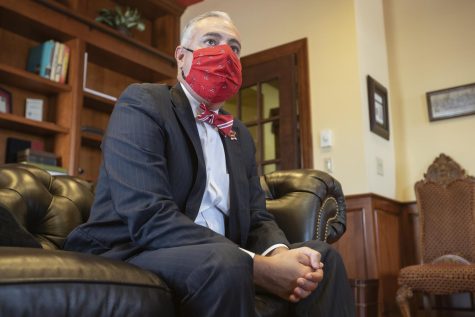Changing to online and hybrid classes create challenges for professors
September 22, 2020
At the beginning of the semester, WKU professors were able to choose the modality of their courses — online, hybrid or face-to-face. Now, five weeks into class, professors are beginning to come to terms with the struggles of teaching during a pandemic.
Of the 3,575 courses offered at WKU this semester, 40.1% are online, 22.4% are hybrid and 37.4% are in-person.
While English professor Daniel Liddle prefers teaching fully in-person, he decided to teach hybrid this semester.
“I think it’s possible to run a very effective online discussion that allows students to engage and connect with the materials just as well, but I haven’t spent the past 10 years honing these skills for a remote context,” Liddle stated in an email.
Liddle, who prefers the interpersonal connection of in-person teaching, said one of the major challenges of teaching during a pandemic is a rippling effect stemming from the pandemic itself.
“It is hard to create meaningful in-person class days if a chunk of students are going to be absent because of the virus,” Liddle stated in an email. “Meanwhile, I don’t want to penalize students for staying safe and sane during these difficult times.”
Geography professor Patricia Kambesis also decided to teach hybrid this semester but has chosen this modality as her overall preference.
“I like the idea of there being multiple modes for teaching a class — more than we had before the pandemic,” Kambesis said.
Kambesis also stated that since she has taught online classes prior to the pandemic, the transition wasn’t a huge challenge for her.
A common challenge among professors with online teaching is establishing a connection with students and getting students to interact with one another.
English professor Wes Berry, who primarily teaches Introduction to Literature, decided to teach fully online this semester in order to ensure the safety of those with underlying health issues. While Berry also experiences challenges connecting with students in an on- line format, he believes that it’s possible to achieve online connections.
“Sometimes learning ‘magic’ happens in a traditional classroom in a seminar format when we’re talking about literature — like times when students get into a debate on a topic — but I’m seeing potential for that happening in online video conferences also,” Berry stated in an email.
When choosing the modality of their courses for this semester, professors not only had to account for the health and safety of their students, but their own well being.
For English professor Sandra Hughes, choosing to teach online was more of a personal decision.
“I have chosen this method because I am immunocompromised based on two different factors, so I didn’t feel like hybrid instruction would be very safe for me,” Hughes stated in an email.
While Hughes stated that she generally prefers teaching face-to-face, she did not feel that it was a realistic possibility for this semester given her health concerns. She stated her biggest challenges were assignment and exam design, grad- ing and communication with students.
“I appreciate, though, that the university has accommodated my need for medical safety, and I am sure that I will get better at online instruction over time,” Hughes stated. “My students have been very patient, and I am quite grateful for that.”
Jacob Latimer can be reached at [email protected]. Follow him on Twitter @jacoblatimer_.




















